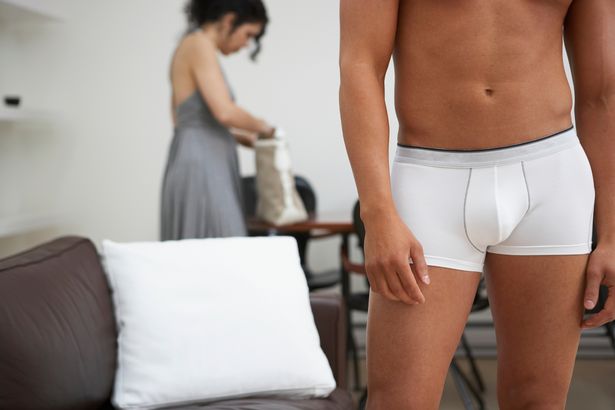Men who wear tighter underwear have lower sperm concentrations than those that wear looser-fitting boxer shorts, a new scientific study has suggested.
Published in the medical journal Human Reproduction, the research is the largest of its kind ever conducted, with 656 male participants studied between 2000 and 2017.
It states that the greatest difference in sperm concentration was found between men wearing boxer shorts and men wearing briefs.
Among the 656 men studied, just over half (53 per cent) reported that they usually wore boxer shorts. These participants had a 25 per cent higher sperm concentration, the study found, as well as a 17 per cent higher total sperm count and 33 per cent more swimming sperm in a single ejaculate.
The research also found that men wearing boxer shorts have lower levels of follicle-stimulating hormone (FSH), compared to men who most frequently wore briefs, boxer-briefs or other tight-fitting underwear.
FSH stimulates sperm production kicks into gear when it needs to compensate for testicular damage from increasing scrotal temperatures and decreasing sperm count.
The research, therefore, suggests that higher FSH levels found in men mean their reproductive organs are having to work harder to acquire good sperm concentration.
For example, boxer short-wearing men were found to have 14 per cent lower FSH levels than men that wore tighter underwear.
Sperm donor, 62, who has fathered 65 kids from the back of his van
The medical study was led by researcher Dr Lidia Mínguez-Alarcón, a scientist at Harvard T.H. Chan School of Public Health. She states that this study differs from any previous research on the topic because it includes a larger number of men.
It is also said to be the first to go beyond the traditional, narrow focus on semen quality and include information on a variety of indicators of testicular function, such as reproductive hormones and sperm DNA damage.
“An important strength of this study is that we were able to investigate the potential relationship between the type of underwear worn and indicators of testicular function such as reproductive hormone levels and DNA damage, which were missing in all previous studies on the topic,” said Dr Mínguez-Alarcón.
“Because of this, we were able to find a potential compensatory mechanism whereby decreased sperm production relating to the type of underwear signals to the hypothalamus to increase secretion of gonadotropin to try to increase sperm production.”
Drinking three glasses of wine a week BOOSTS male fertility, surprising study finds
Gonadotropin a hormone that acts on the testes and that is reflected by the increased levels of FSH.
However, Mínguez-Alarcón points out that it’s not possible to prove from these findings that the type of underwear causes the difference in semen quality and FSH levels, only that there is an association between them.
Other factors that might affect scrotal heat, such as the type of trousers, for instance, skinny jeans, and underwear fabric, could also affect the results.
“Since men can modify the type of underwear they choose to wear, these results may be useful to improve men’s testicular function,” Mínguez-Alarcón added.
Commenting on the study, Prof Ashley Grossman, Professor of Endocrinology at Oxford Centre for Diabetes, Endocrinology and Metabolism, said that since so many sperms are produced per ejaculate and the results are generally within the normal range, it is difficult to know if wearing different boxer shorts is significant in terms of fertility.
However, he added that as it is a simple measure to wear boxer shorts when there is uncertainty regarding fertility, it is worthwhile considering this type of change in lifestyle.
“[Although] we do not know whether looser pants actually cause the increased sperm numbers and quality, and therefore whether they would be likely to improve actual fertility,” he said.




